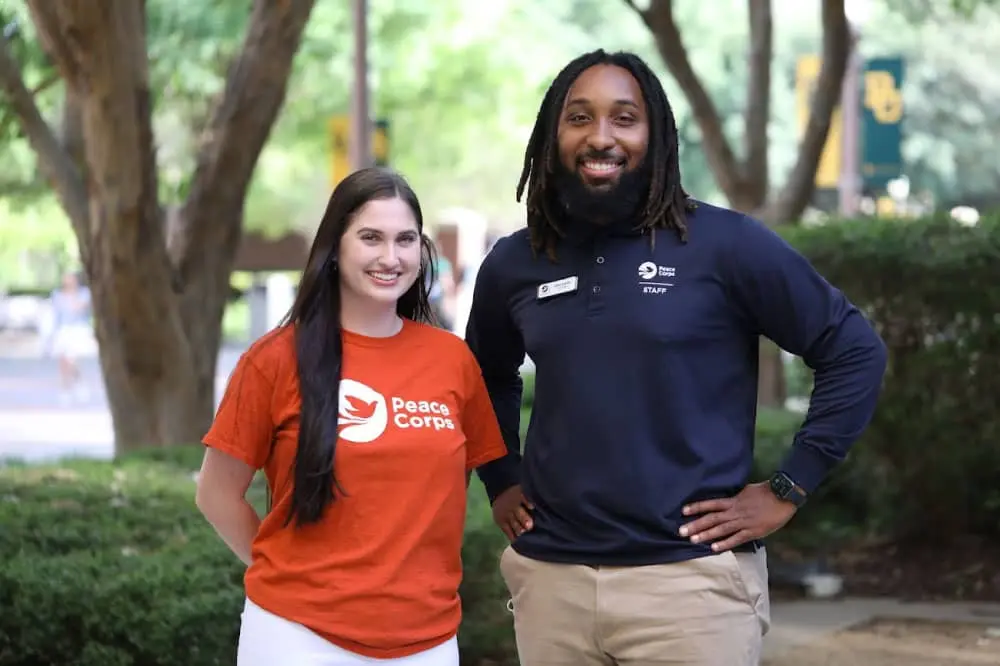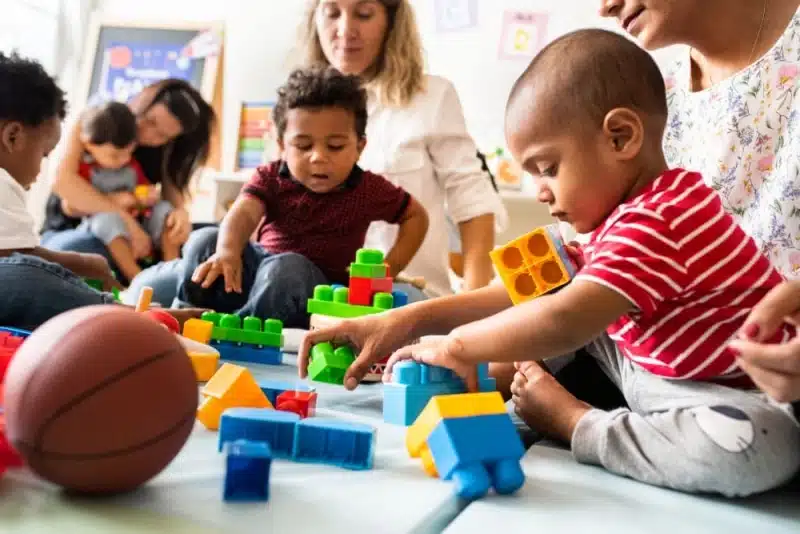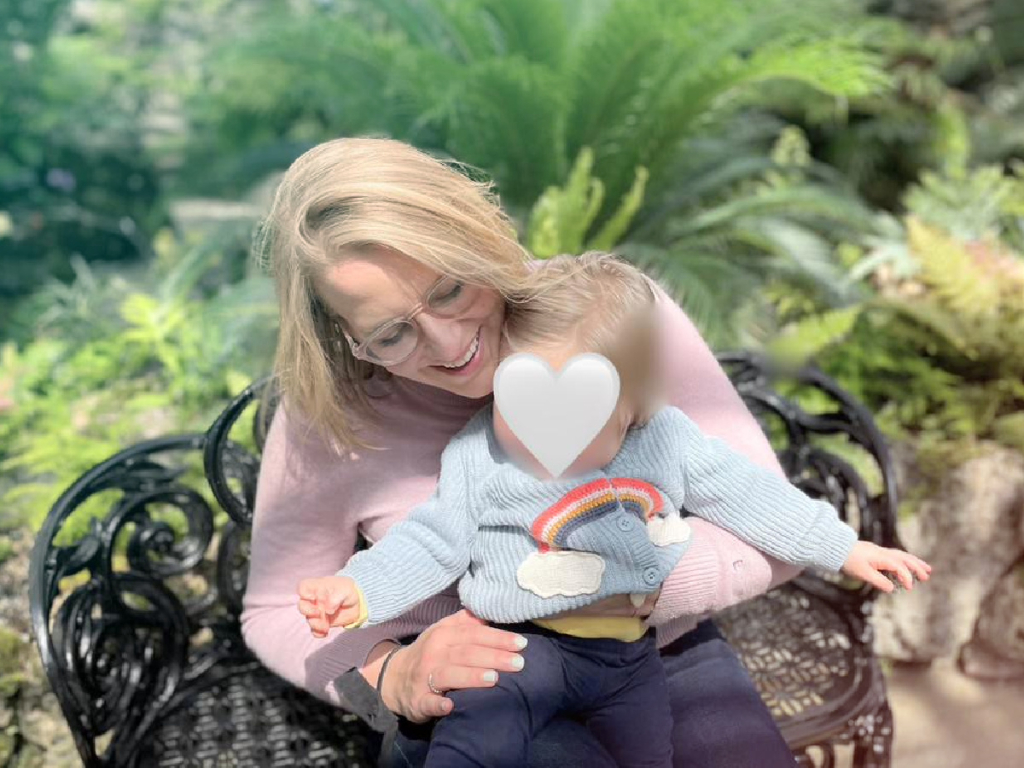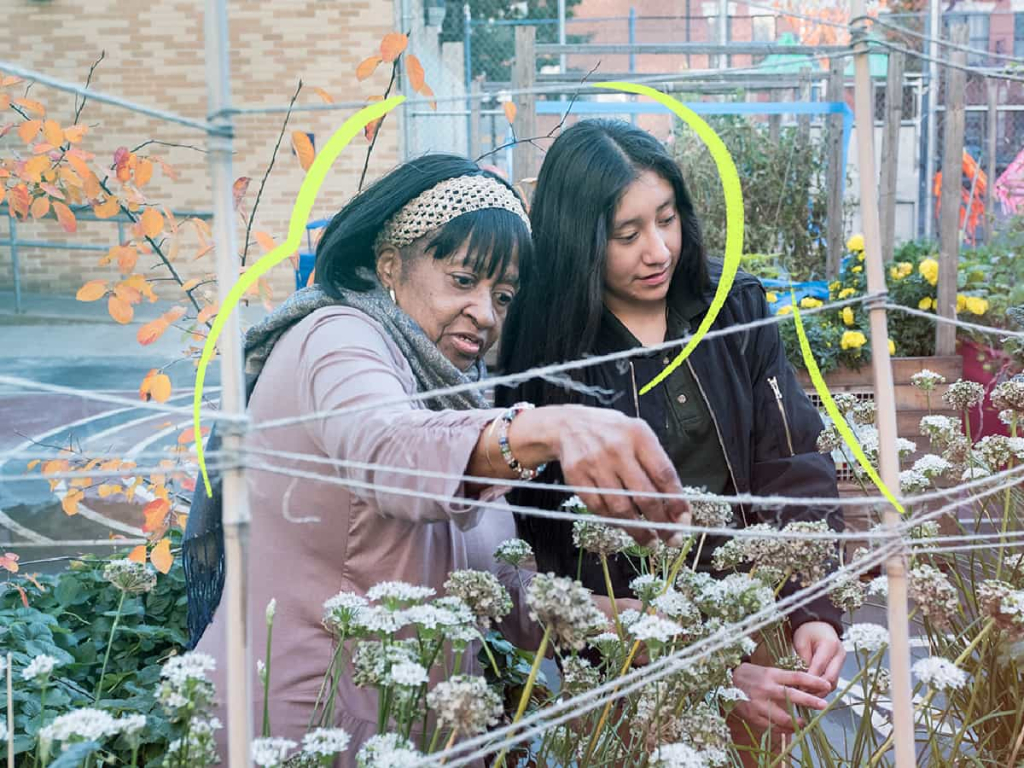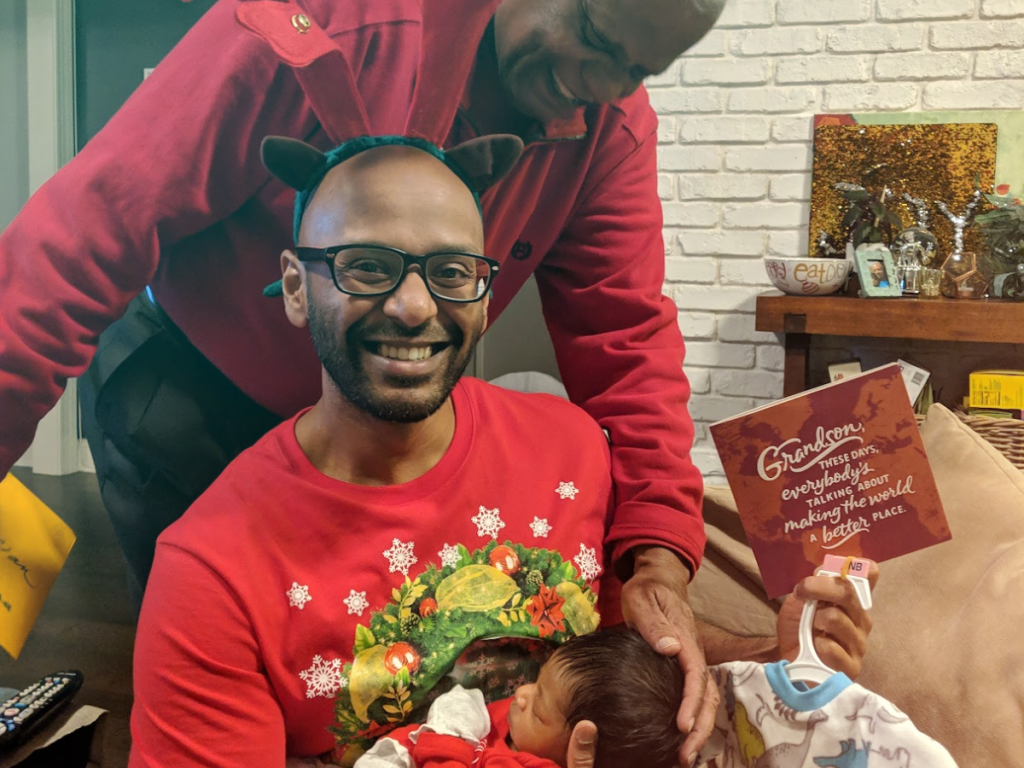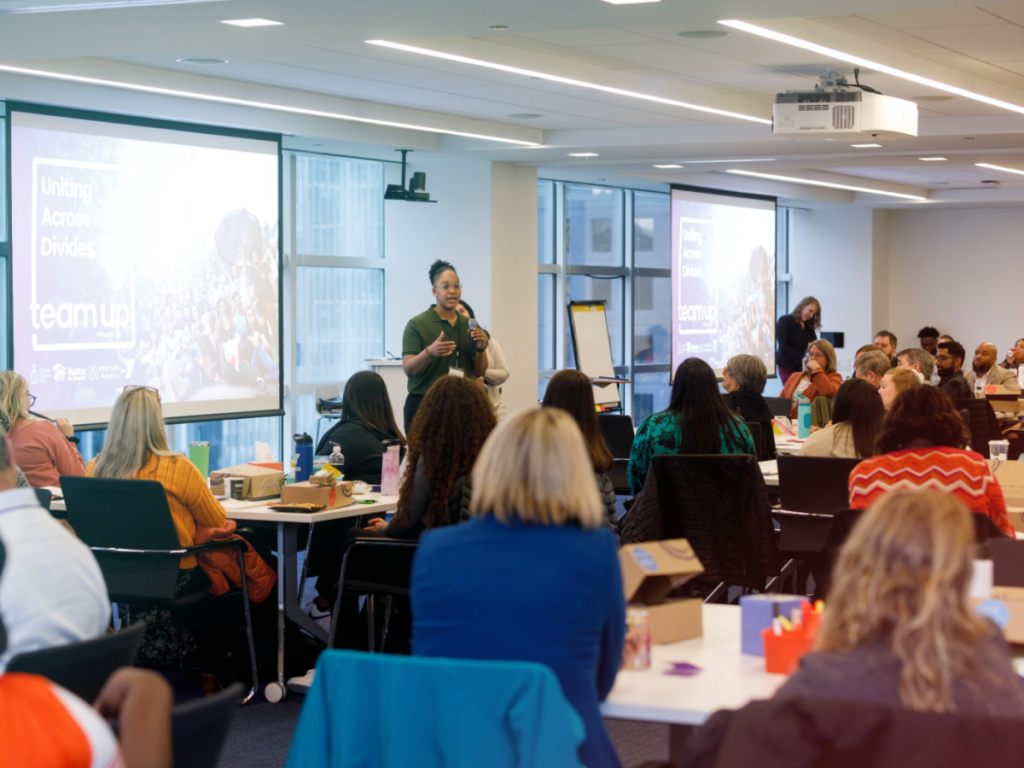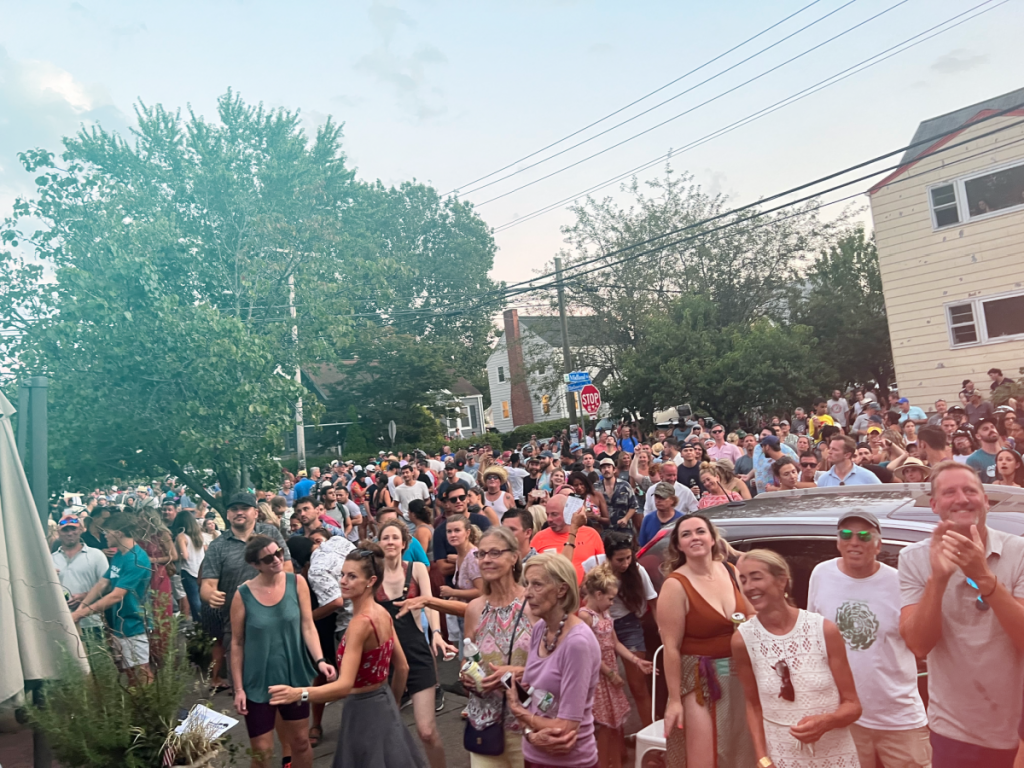In the last couple of years, college campuses have been portrayed as fractured and divided, and the rise in political violence across the country has added to that perception. Yet, these places of learning are also where the seeds of a more pluralistic America are taking root.
Beyond the headlines, there are educators, administrators, and students seeking new ways to engage and build connections across differences. Still, these experiments unfold in an atmosphere of uncertainty and a fragile trust that has become part of campus life today.
At Einhorn Collaborative, we have a front-row seat to the work of our grantee partners who are helping administrators and students come together to gain a deeper understanding and appreciation of different points of view. Here, we want to share some of the ways these organizations work, and what their efforts reveal about the challenges and opportunities in nurturing a shared humanity.
A conversation with Eboo Patel, Founder and President of Interfaith America, revealed a noteworthy statistic. The organization’s flagship event drew record attendance in August: 750 people, including students and educators committed to fostering a culture of pluralism, showed up to learn more.
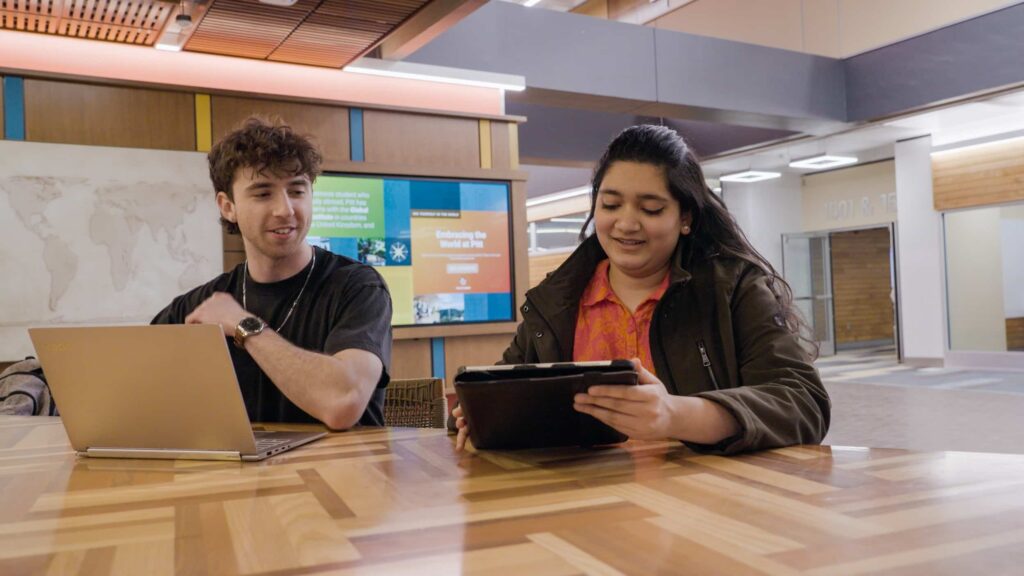
“Students are hungry to be able to express their identities and to connect across differences in new and better ways,” Eboo observes. “The last few years on campus have felt very tense in terms of expressing a range of opinions and looking to make positive connections. And while clearly it is a very tense moment when it comes to higher education, I get the sense that students are more willing to experiment and explore, which I think is exciting.”
Eboo points to the attendance at the Interfaith Leadership Summit as a strong signal about the interest on campus to express a range of values and beliefs, connect positively across differences, and find ways to cooperate for the common good.
Caroline Mehl, Co-founder and Executive Director at the Constructive Dialogue Institute, has found a similar desire for change, particularly around conversations about contentious issues.
“We are working with more than 100 campuses across the country, and administrators and leaders are really naming this as a core priority,” says Caroline. “Administrators are saying that this is something they’re really focused on, and we see that in how campuses are investing their energy and their resources.”
“What’s interesting is that we consistently hear from our campus partners that the majority of students want a culture that is truly pluralistic, welcomes diverse perspectives, and makes space for these types of conversations. That is really the outcome that the majority of the population is striving for.”
What the Numbers Tell Us
More in Common’s recent research shows that Americans strongly support core democratic and pluralistic values, including respect across lines of difference and freedom of speech. More in Common’s survey of U.S. adults in June found that 89 percent of Democrats and 85 percent of Republicans believe that “freedom of speech is unconditional.” They also supported respecting “those you disagree with.”
However, when you introduce perceptions of their political opponents, that number drops dramatically. Republicans think only 52 percent of Democrats believe that freedom of speech is unconditional, while Democrats think only 57 percent of Republicans share that belief.
Across political lines, a January survey found that the word “divided” defined America, with each party believing that unity isn’t a priority for their opponent, even though most desire for the country to be united.
Now, let’s consider the generation on campus today. More in Common in May dug deeper to find if the nation’s youngest voters are less interested in democracy and peaceful resolutions to political differences. While it is true that Gen Z is unsure of the value of democracy — only four in 10 agree that it’s the best form of government — they do want to be heard. This group’s disappointment in democracy stems largely from high expectations for the system. Given high polarization and political gridlock that thwarts policy solutions to contemporary challenges, Gen Z has become “skeptical about the system and who it is meant to serve,” More in Common notes.
Perhaps the biggest takeaway from More in Common’s data is this: “To engage young Americans in our democracy, taking them seriously would be a good start.”
A Defining Possibility
Engaging with young people on campus presents a tremendous opportunity for pluralism, and those who work in this field agree. In response to the upheaval and escalation in higher education — whether it’s students exercising free speech in the form of protest or administrators navigating external pressures — campuses are being forced to reckon with how difference is expressed, supported, and maintained.
New roles focused on bridge-building and nurturing conversations across differences are being created, observes Melissa Weintraub, Co-founder and CEO of Resetting the Table.
“Many of the people hired for bridge-building roles are starting with our training and the training of peer organizations as their entry point, as they’re thinking about inventing and shaping work on campus,” she says. “So that’s an amazing opportunity. We’re learning how much difference it makes when there is a person whose portfolio focuses on this work, or even a whole office with the focus of systematically creating campus-wide approaches and getting trained in the skills and tools needed to achieve it. Leaders are asking big, difficult questions.”
“[Conflict] is a fact of life within any institution, within any community, and within any democracy or society, let alone one as intensely polarized as ours is,” she says.
Melissa Weintraub
Co-founder and CEO of Resetting the Table
Melissa, like other grantee partners, has been working at this for decades. Resetting the Table draws tools from multiple fields, including mediation, conflict resolution, trauma therapy, and social research.
“Our tools emerged from the crucible of conflict zones,” she says. “I spent 20 years personally working on the Israeli-Palestinian conflict. These tools feel like the right ones to meet this moment.”
Melissa reminds us that conflict isn’t an aberration — it’s a matter of course.
“It’s a fact of life within any institution, within any community, and within any democracy or society, let alone one as intensely polarized as ours is,” she says.
Resetting the Table’s evidence-based framework aims to shift patterns of destructive conflict toward problem-solving and generative discussion. A 10-year longitudinal study found that 99 percent of alumni of its high-intensity training still use the tools more than two years later.
“What we’re most looking forward to is seeing the techniques that we’re teaching being systematically disseminated in ways that lead to macro-level impacts because they get embedded into undergraduate education, student experience, residential life, and faculty development,” Melissa says.
She points to the University of California at Los Angeles as an example where Resetting the Table has been able to dig deeper. At UCLA, Resetting the Table’s tools have already reached more than 1,400 administrators, staff, and student leaders, and that includes skill-building for teaching assistants, research assistants, and those who train them. Student club leaders, student government members, and medical students are also practicing skills for communicating across divides.
“People are learning these skills as part of their coursework. It’s even being integrated into writing instruction and how students learn to do academic writing, in which they learn how to reconstruct each other’s points of view accurately, on their own terms, rather than just to poke holes and deconstruct,” Melissa says.
Constructive Dialogue Institute’s efforts at the Ford School of Public Policy at the University of Michigan are another example of equipping students with the skills to navigate polarization and prevent breakdown in communications. The school recruited students as peer leaders through its Bridge Builders program and trained them in Constructive Dialogue Institute’s Perspectives modules, a blended learning program with practical skills to engage across lines of difference and facilitation techniques.
It is no secret that campuses are struggling to meet the needs of various stakeholders. Constructive Dialogue Institute aims to help these institutions navigate through that labyrinth and create environments that meet and balance competing needs.
“We offer training that’s explicitly about how to respond to high-stakes crises that might erupt, whether it’s students leading some type of protest or some type of activist intervention from external groups,” she says. “The key part is we have a model that runs through most of our programming, which is called prepare, respond, rebuild.”
While skills that tackle such challenges responsibly with immediacy are essential, there are actions that can be proactive. Caroline asks campus leaders to consider, “How are you building a climate, processes, and structures into your campus that actually mitigate the likelihood of those types of disruptions from happening? How are you establishing a culture of trust, a culture where people feel comfortable engaging openly and honestly, so that when those types of things happen, you just have more resources available to you, so it doesn’t escalate as quickly?”
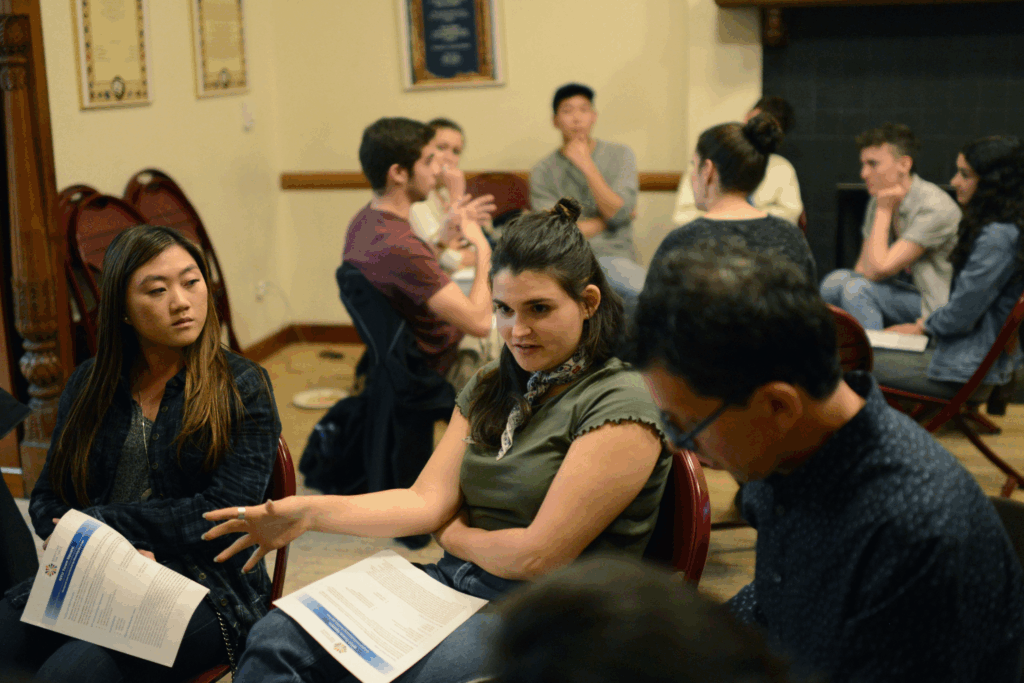
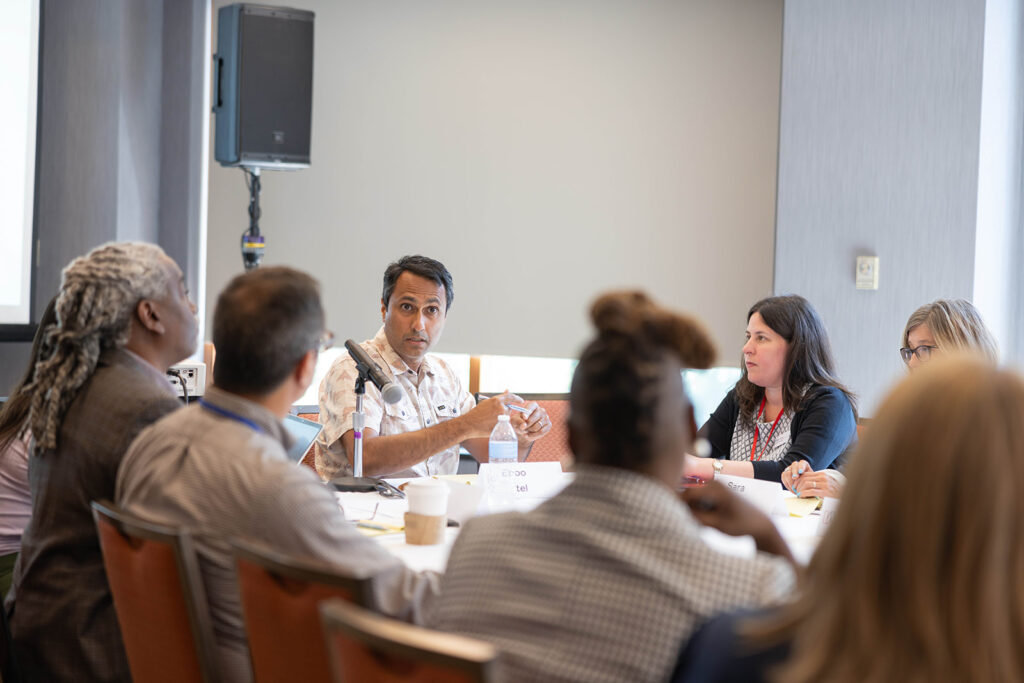
“So, we really advise them on those proactive steps that you can take, how to handle those immediate ruptures, then also how to rebuild a sense of community,” said Caroline.
It is in moments of tension that the foundations of belonging are often laid. Interfaith America’s Eboo says it would behoove places of learning to set expectations that talking about challenging issues. “They are right versus right issues, not right versus wrong issues.”
“We’re going to talk about right versus right issues. We’re going to welcome a variety of points of view, and we’re going to be a learning community, where we encourage each other to navigate these complicated issues as well as possible,” he says.
The aftermath of Hamas’ attacks on Israel two years ago heightened the response to the Israeli-Palestinian conflict on campuses nationwide. Administrators were unprepared for student expression.
At that time, Rajiv Vinnakota, President of the Institute for Citizens & Scholars, recalls that roughly 18 college presidents were working with his organization through the College Presidents for Civic Preparedness initiative. The network has since grown into a coalition of over 125 campus leaders from diverse ideologies, backgrounds, and institutions.
“The unintended consequence of it was the number of presidents who recognized that this needed to be a priority,” Raj says. “Many more presidents have recognized and wanted to be part of this larger cohort of work.”
Hope for the Future
Raj is emphatic about building momentum. Part of the impact of this work is to be able to build the bandwagon and to be able to say, “Look, this is where higher education is going and should go. Please join.”
The vision, Melissa underscores, is to build a culture of pluralism on campus.
“What we hope to accomplish is the dissemination of skills that teach people how to manifest pluralism viscerally, so students, faculty, chancellors, and staff at all levels actually put it into practice,” she says. “They come to understand each other’s underlying concerns, they can hold the cognitive dissonance of differences and navigate conflicts in ways that lead to stronger connections, sharper thinking, collective insight, and complex problem solving.”
To me, there’s a larger movement aspect of this that we have to really continue to build the momentum for.
Rajiv Vinnakota
President of the Institute for Citizens & Scholars
When our Executive Director, Jenn Hoos Rothberg, wrote about her hope for a pluralistic society in 2021, she emphasized the deep, up-close relational work of discovering the beauty and humanity in each other, even when we deeply disagree. Her conversations with our grantee partners reinforce what we have long believed: that pluralism is a daily practice of listening, showing up, and intentionally choosing curiosity. It is not an abstract notion.
The work is messy and imperfect, but it’s also where enduring relationships are formed. As college and university campuses tackle uncertainty and division, they are also incubating skills and habits necessary for a healthy democracy — empathy, patience, and courage to accept complexity.
If the buds of pluralism Jenn wrote about then are to flourish now, it will be because institutions and individuals alike commit to tending them: nurturing spaces where difference is engaged and not avoided.


